Throughout the year, Paluma is blessed with colourful plants, photos of which are regularly posted on the website. Such is the focus on gorgeous blooms that the humble food gardens tend to be overlooked. They are due for some well-deserved attention, particularly as growing fruit and vegetables in Paluma is a real challenge.
The climate can be unkind at times but the wild-life presents the major obstacle to successful food gardening. Bush rats and White-tailed rats eat stone fruits, such as plums and peaches long before the fruit is ripe. Cockatoos savage citrus crops and at night, wallabies emerge from the forest and feast on any new green leaf within reach; citrus, gardenia, rose and hibiscus are favourites along with potted herbs. Bandicoots burrow deep beneath plants, birds steal the chillies but the worst predator within the village is the Brush Turkey. Two or three of these can, in only a few minutes, lay waste to an entire bed of vegetables: nothing is spared; pots are up-ended and their contents eaten and they rival rats in their plunder of pumpkin and choko vines. Out on the rural blocks, feral pigs make unwelcome forays, at times pushing through flimsy fences and devouring everything from bananas to sweet potatoes.
So, it is with awe and admiration that I see several Paluma residents refuse to be defeated and have productive gardens that would make a professional market gardener or orchardist envious. What are some of the secrets of their success? Location, (a position with enough sunlight throughout the day) and pest-proofing are vital.
On the rural blocks most gardens are securely fenced, some are also roofed with wire mesh.
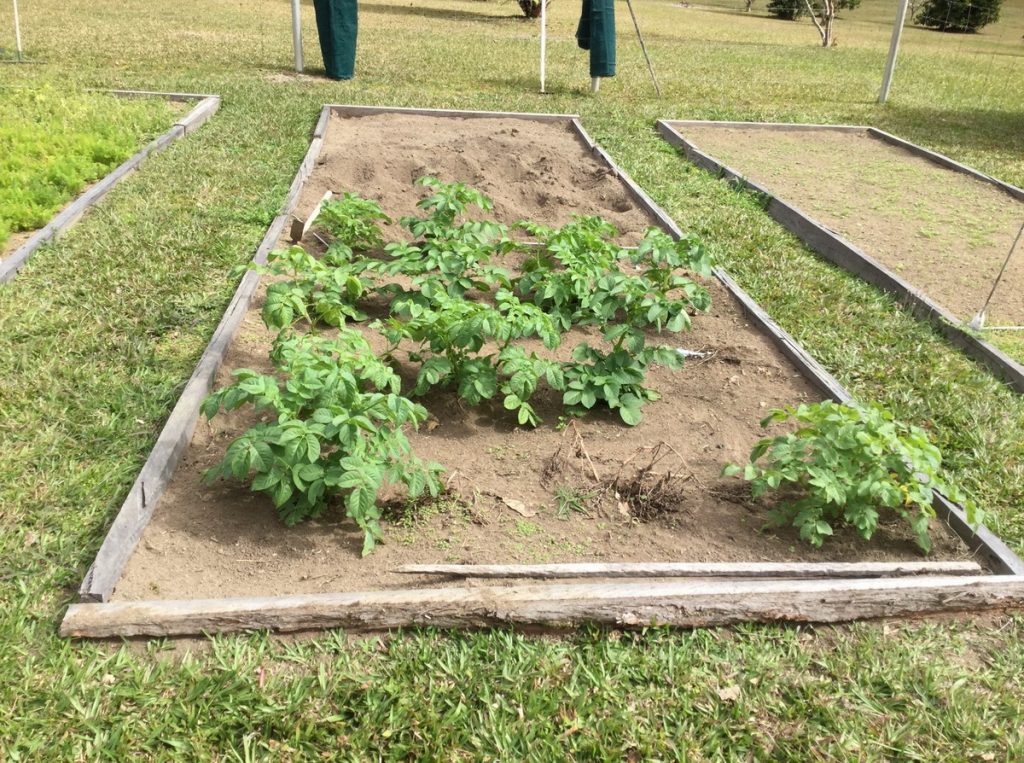
Don’s potato patch. 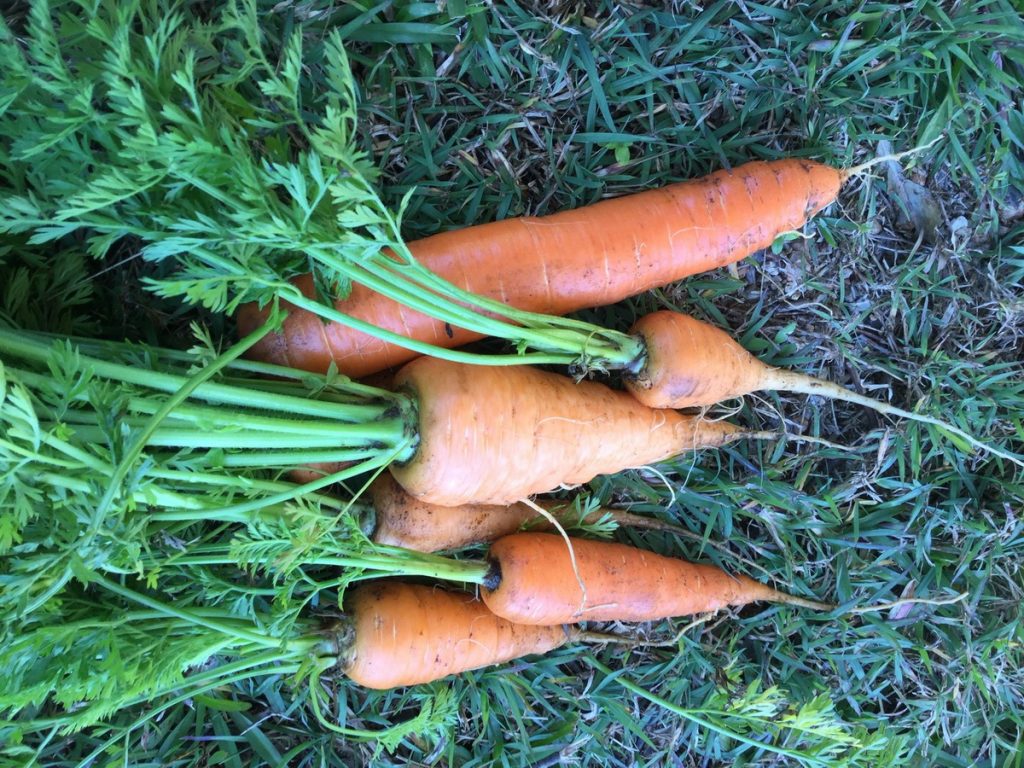
Carrots – Guaranteed crisp and sweet. 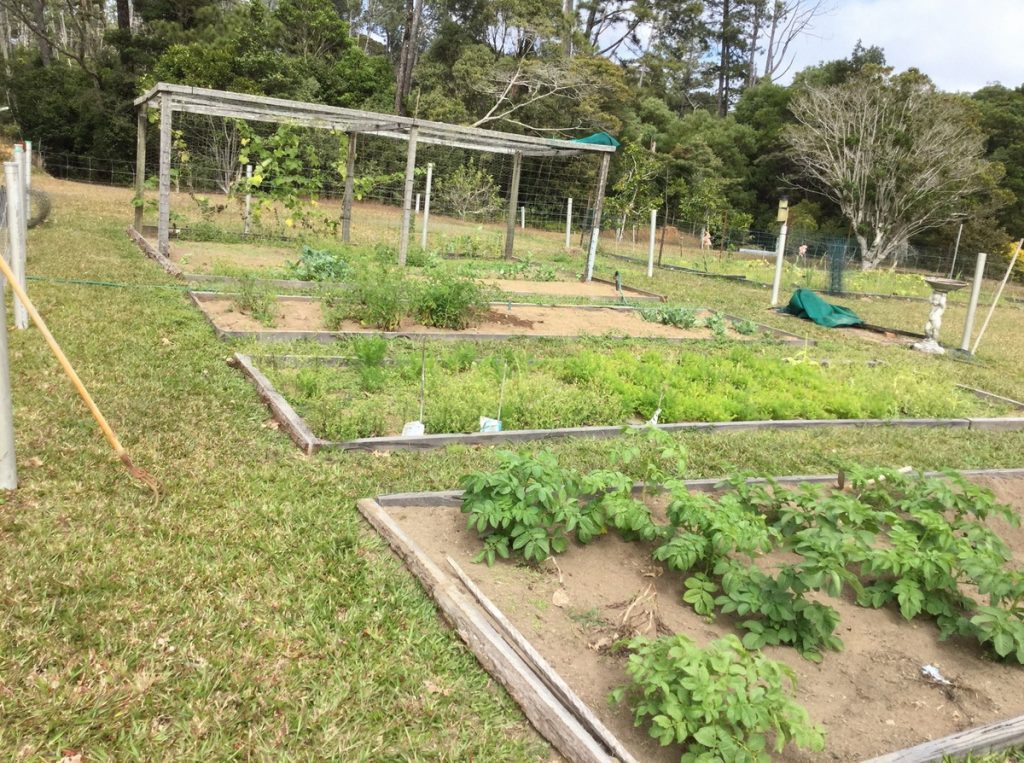
Don’s Garden plots are scheduled to be rotary hoed and replanted.
In the village various strategies are employed. Some gardens are in raised beds with a bird-mesh structure above, which can be opened to give access for weeding and harvesting. Other kitchen gardens are in purpose-built boxes suspended from veranda rails – excellent for restricted spaces.
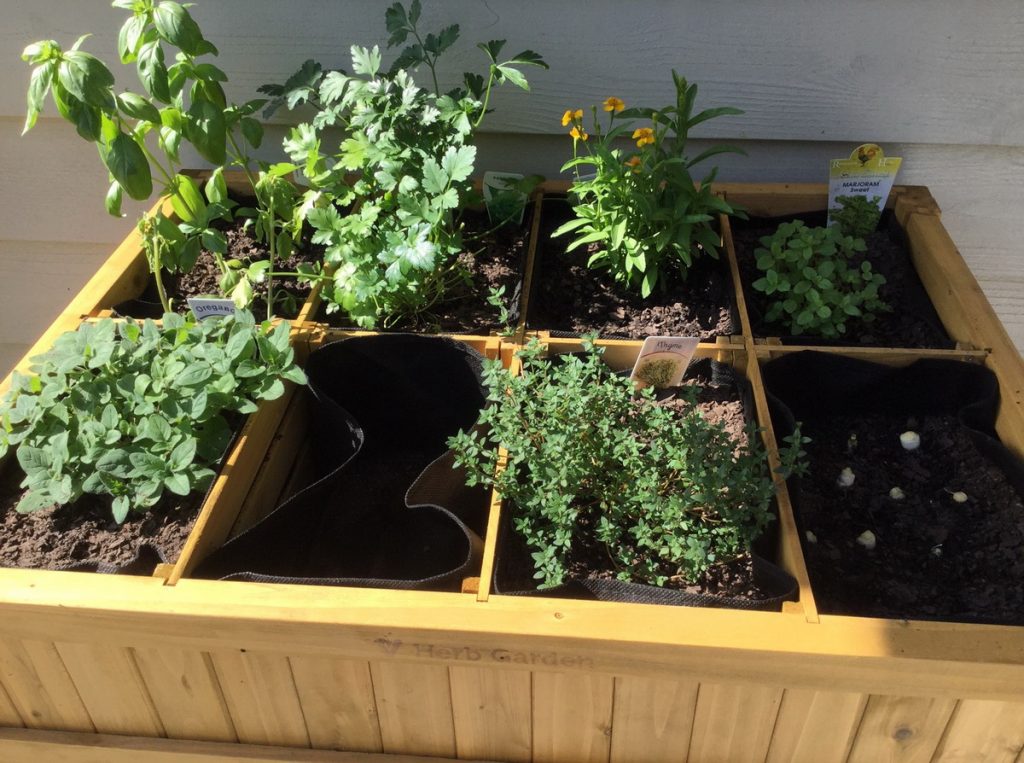
Jan and Peter have given their ‘caged’ plants extra protection by planting insect repelling flowers nearby.
Steve and Michele Lando have thwarted turkeys and bandicoots by planting a variety of herbs ans some young fruit trees in a rock garden.
Barry and Chris at the Paluma Environmental Education Centre, have established hydroponic gardens with healthy crops of lettuce varieties, tomatoes, beans, radish and a range of herbs. The tubs containing the plants are set on a vertical framework, making them fairly inaccessible to turkeys. A conventional vegetable garden has also been established at the school with the plots protected by bird-mesh covered arches.
So far turkeys have not discovered the hydroponic plants but the other garden has not escaped attention; a net inadvertently left open gave a young male turkey his chance to explore.
So, with location and protection taken care of, the secret of success in producing strong, healthy food plants, apart from having green thumbs, and a passion for gardening, is ascribed to the fertiliser used. Fertilising with liquid and casts from a worm farm seems to be a winner. The popularity of worm farms is growing with several gardeners now raising these helpful little pets.
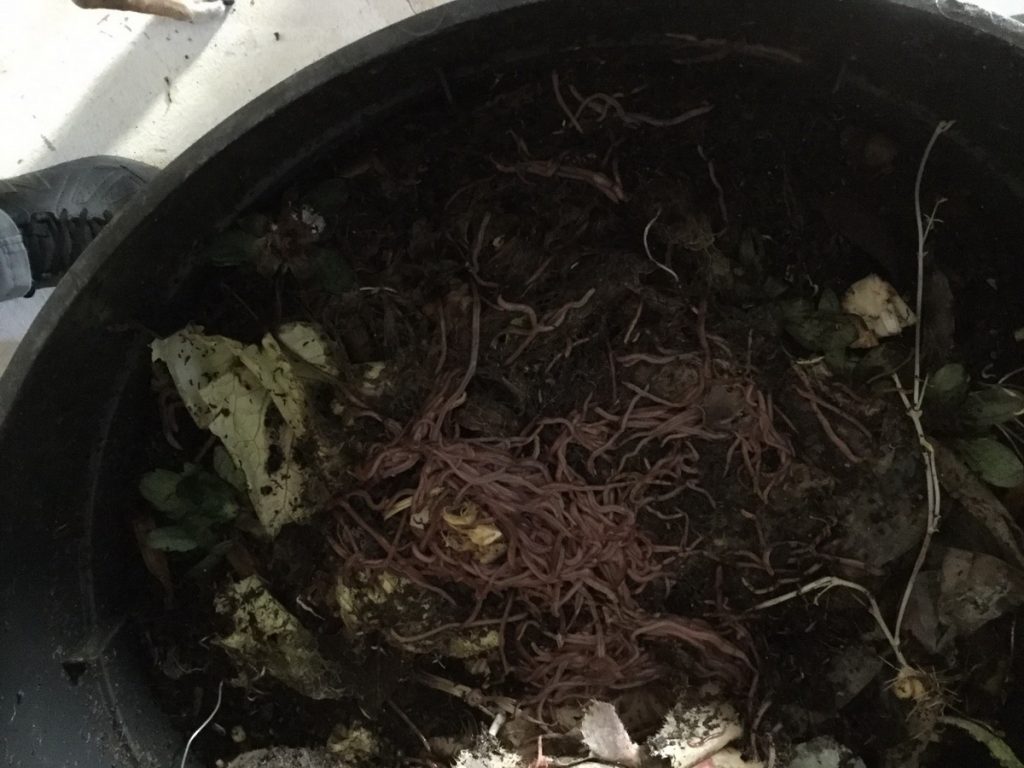
While commercial products work well, traditional natural fertilisers such as goat and cow manure are highly regarded.
Hats off to all these determined gardeners. You are inspirational! This article will be followed up with regular updates of what fruit has ripened and what vegetables are being harvested.
Colwyn Campbell

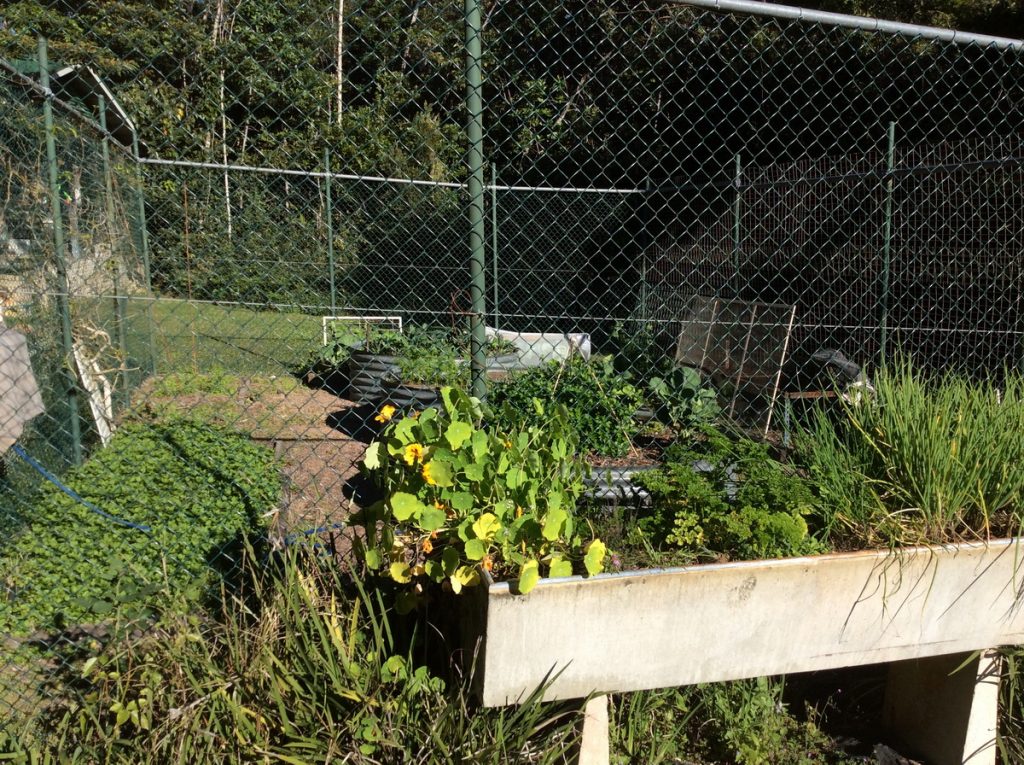
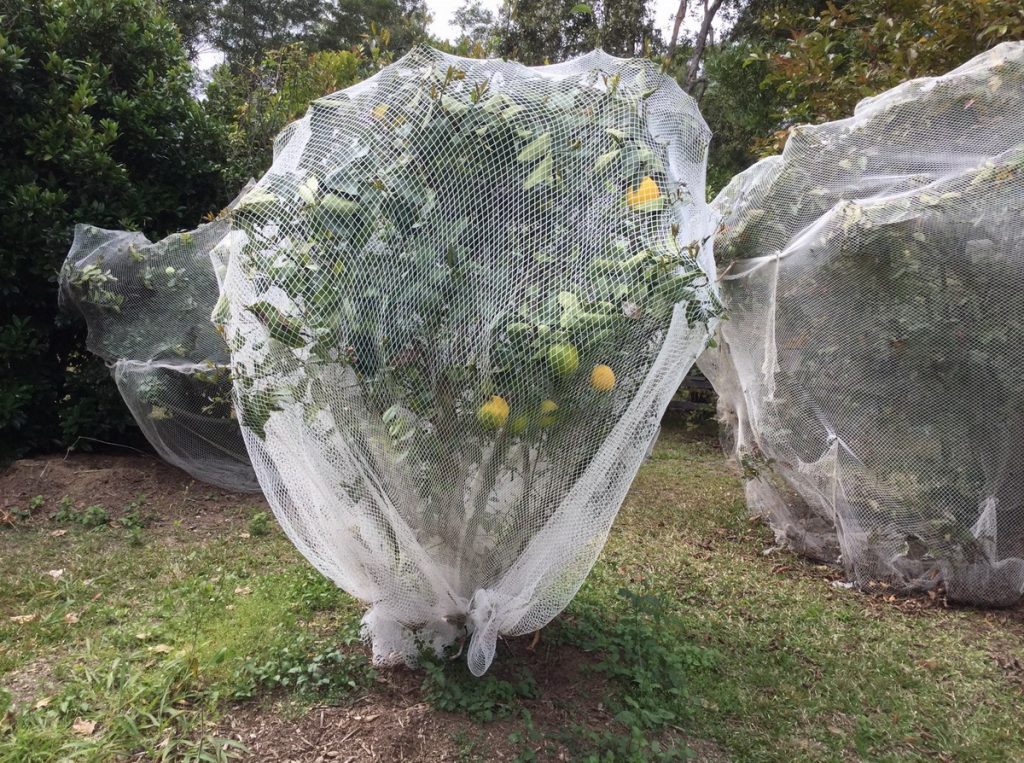
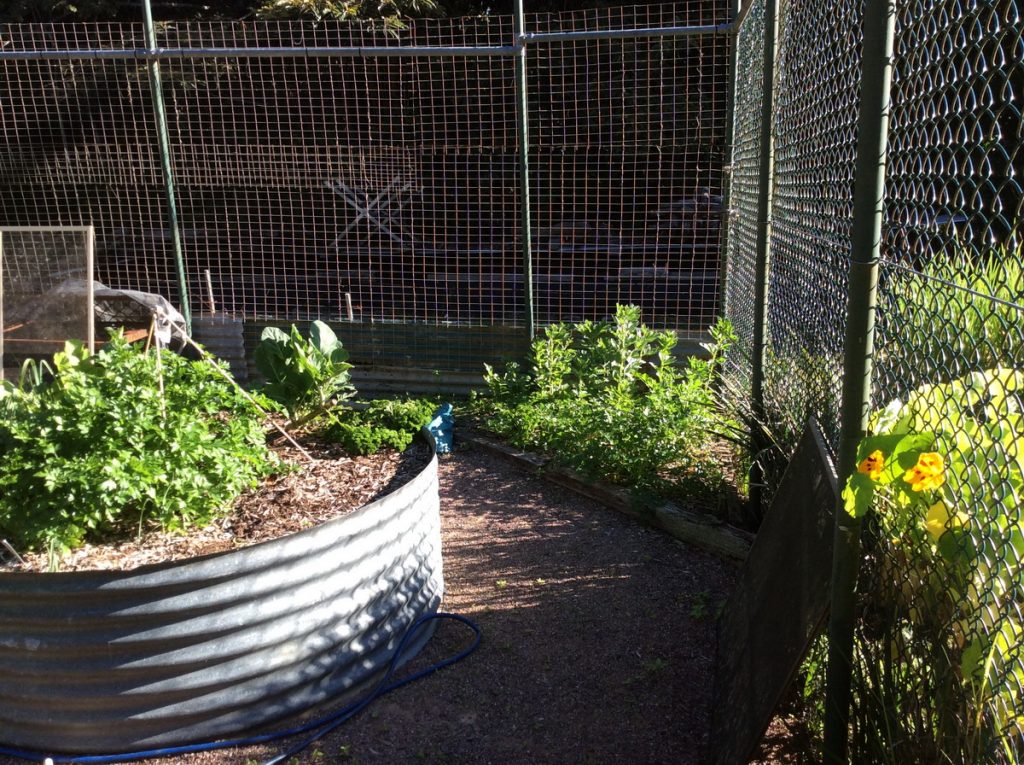
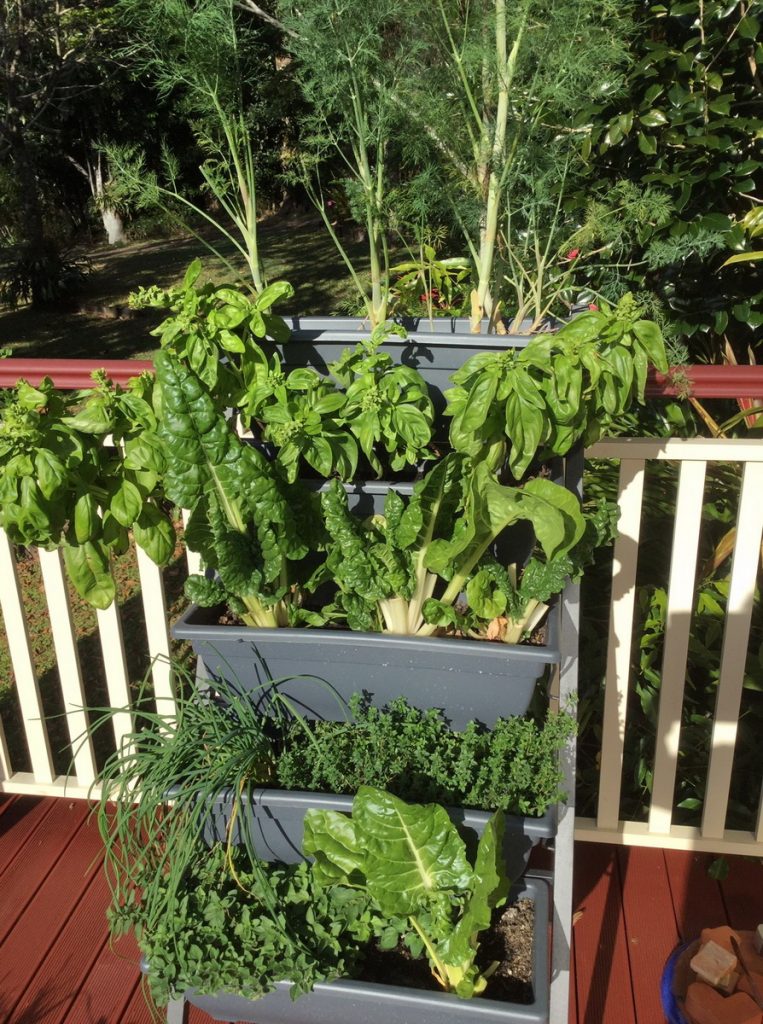
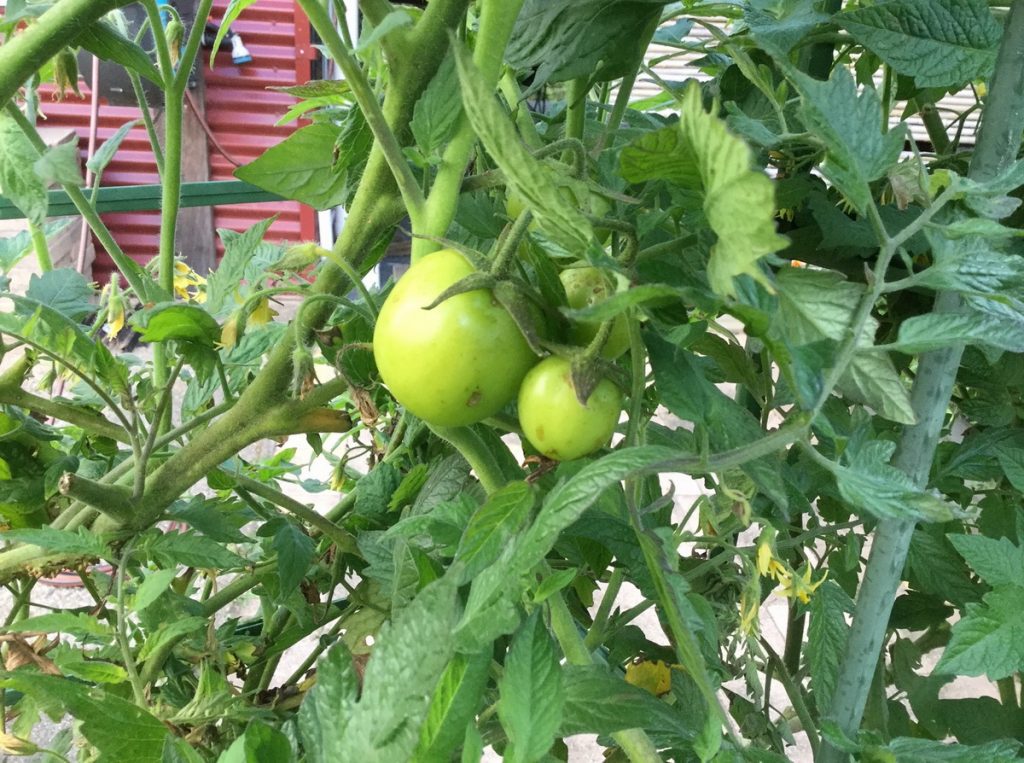
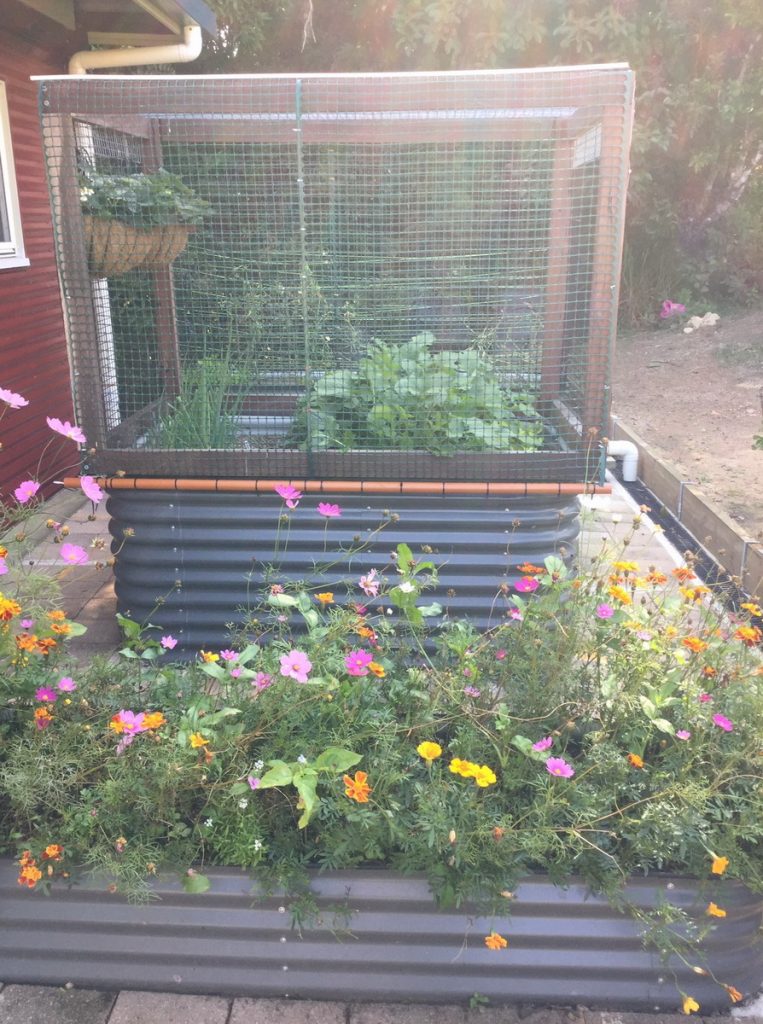
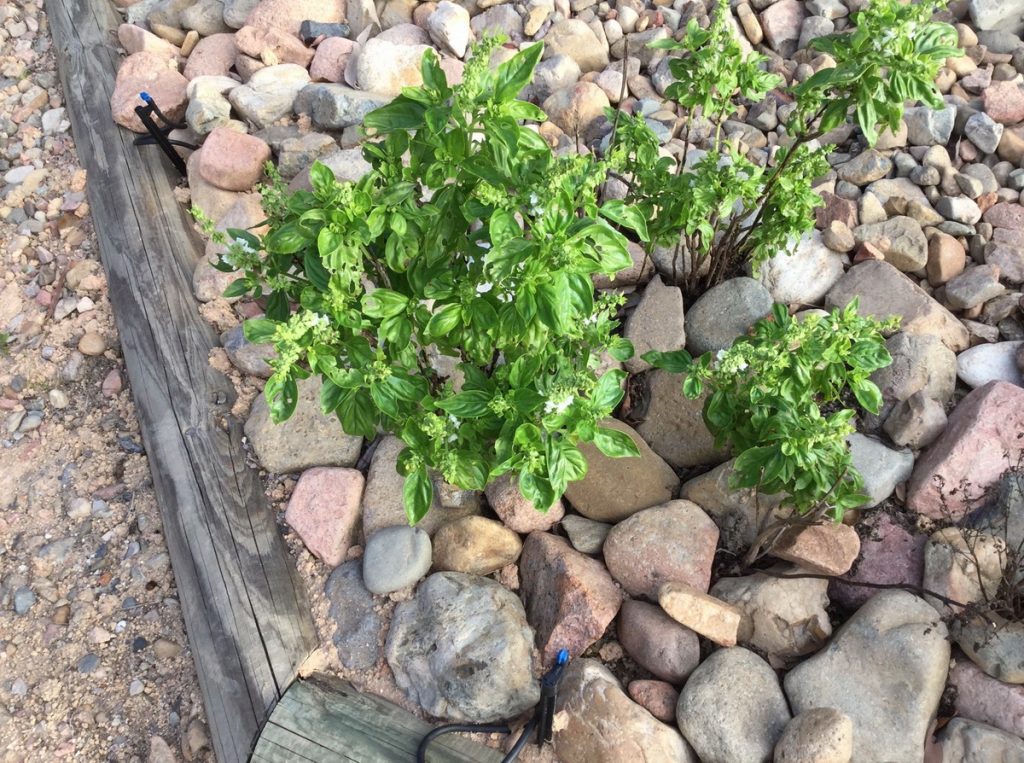
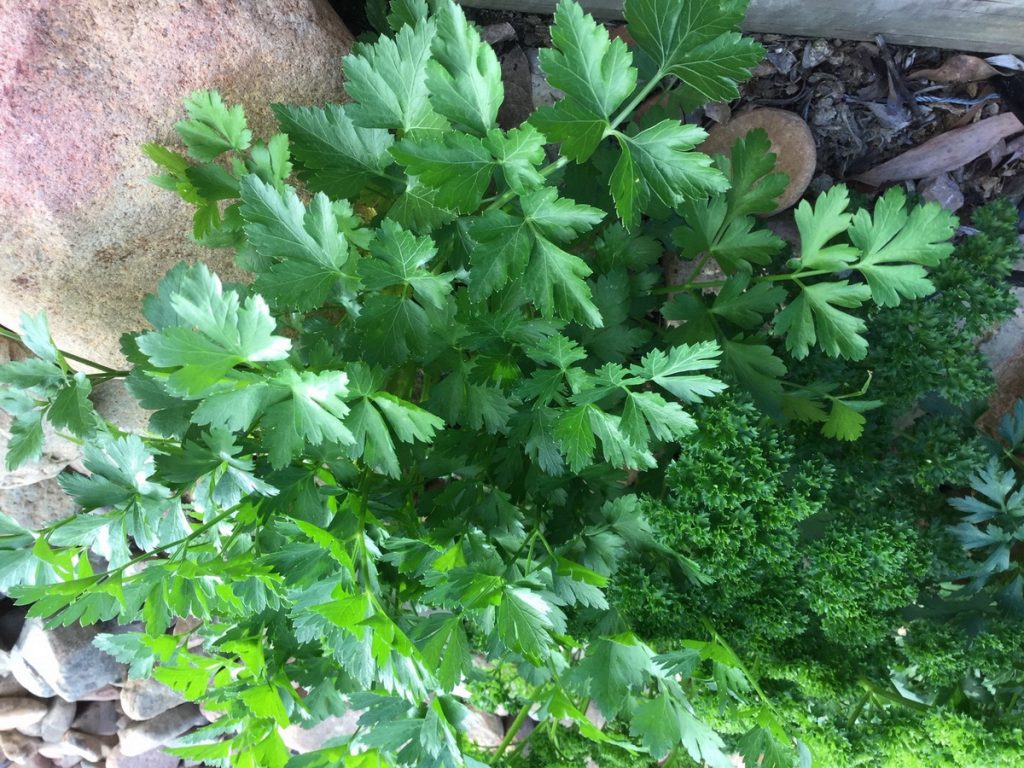
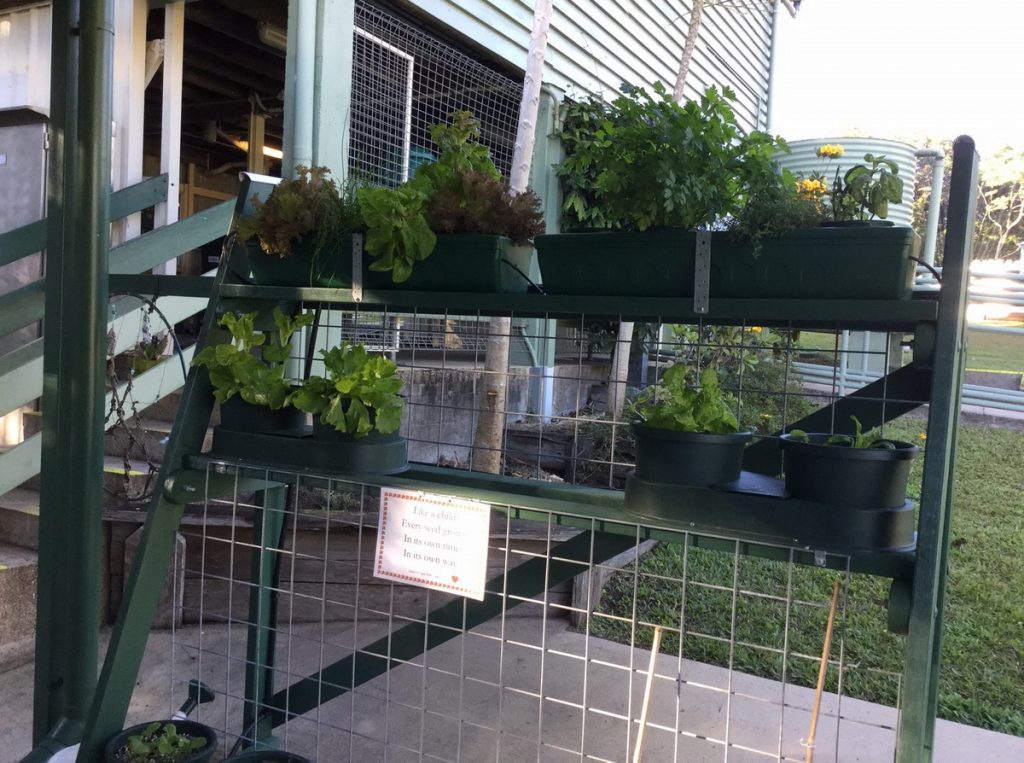
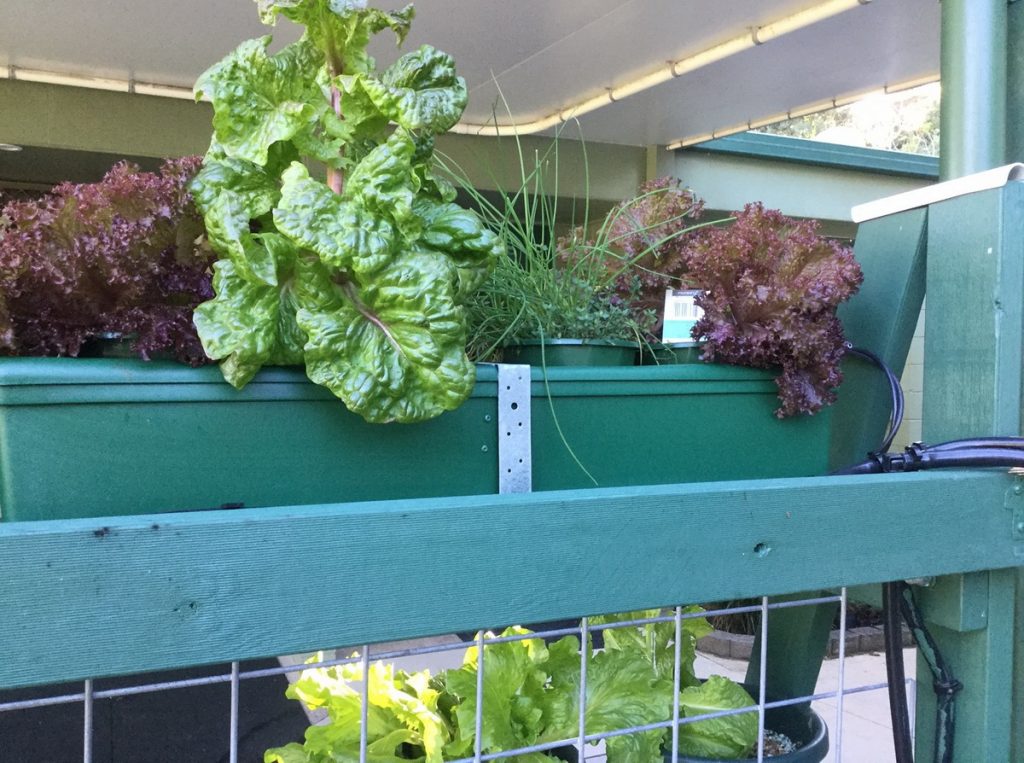
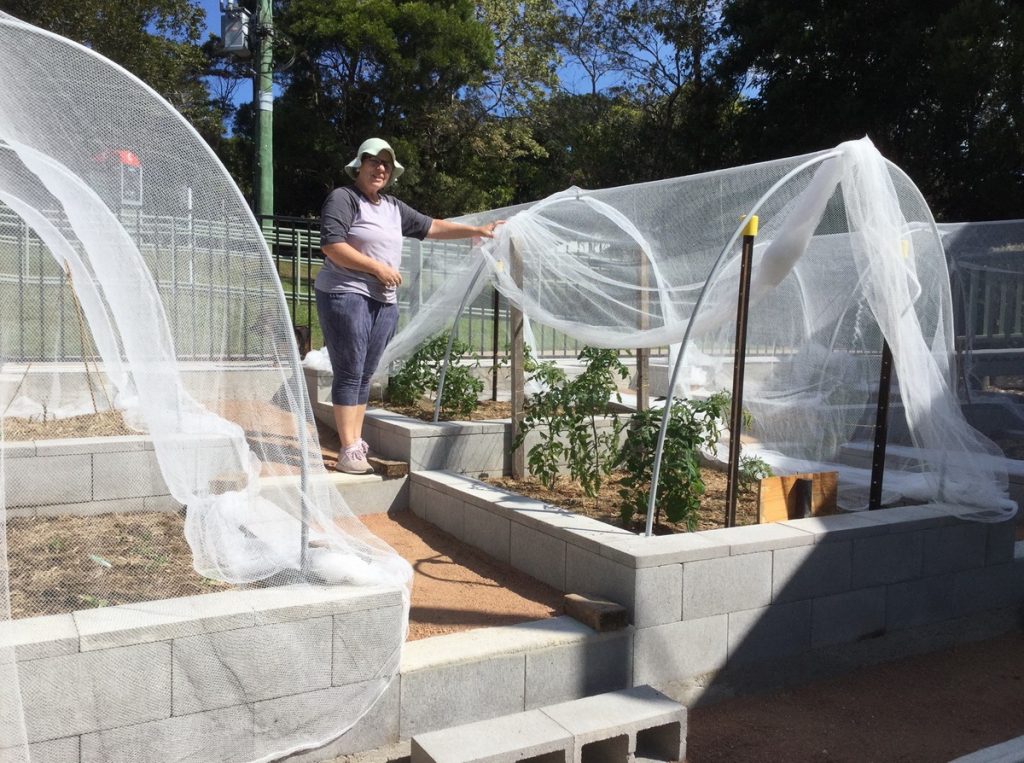
Great article as always, Colwyn. But you got it wrong. The cage at the Drew’s property is for Donna to cage Michael when he is naughty – not for plants.
Please watch for the little birds like our Grey headed Robins in/on trees with netting. They are not interested in the fruit or vegetables but are attracted by the insects so are helpful to we gardeners. We sadly had 2 die in a net covering a lemon tree. Wendy and I decided we would rather have the Robins than the lemons – so no netting for us. Probably OK for residents who can release any with their little feet and claws tangled but please keep watch.
A good point, Beth. Fortunately I have not had to rescue any small birds but once had to release a traumatised turkey.